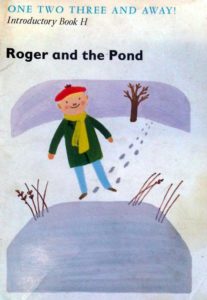If you’re a user and abuser of Yoast’s little orange, yellow and green SEO circles, you’ll probably be familiar with the Flesch Reading Ease Test. This makes up part of the ‘Readability’ score your content will receive. The chances are, it’s the one little light on your page analysis tab which stays obstinately amber, or worse still, red! Otherwise, you probably ignore the little blighter the vast majority of the time. So what even is it?
What is the Flesch reading ease test?
We’ll admit, it doesn’t sound too sexy, but unfortunately, not all things copywriting are. According to Yoast:
“The Flesch readability score uses the sentence length (number of words per sentence) and the number of syllables per word in an equation to calculate the reading ease. Texts with a very high Flesch reading ease score (about 100) are very easy to read. They have short sentences and no words of more than two syllables”.
Mmmhmm. Okay. So that means the longer the sentences you use, the lower the score. The more polysyllabic words, the lower the score. So if you’re using very long sentences full of polysyllabic words, your score will be low. If you’re using very short sentences full of monosyllabic words, your score will skyrocket.
As a rule of thumb, if you’re scoring 90-100, you’ll be understood by an 11 year old. If you’re somewhere between 60-70, a 13 year old will know what you’re talking about. If you stray into the 0 – 30 arena, it’s essentially just you and the rocket scientists.
Does it work?
That depends on how you’re using it. For the purposes of readability on the interweb, I’d argue no. As your humble correspondent is hopefully currently demonstrating, readability is not just about short sentences and shorter words. It’s about flow, grammar, style, fluency, tone, idiosyncrasy, flair, vocabulary. Yes, it’s important to write accessible text which everyone can understand, but it’s also important to entice and interest.
Try these for size:
A: They went to see the fireworks. The fireworks were red, white and green. The fireworks were nice to look at.
B: Skyrockets, Catherine wheels, firecrackers; the horizon flickered and fizzed in a joyful kaleidoscope of flame, backlighting complex threads of scorched smoke, intertwined like tumultuous tree branches.
Which would you rather read? Yes, those are extreme examples, and no, I’m not about to win the Man Booker prize, but I’d put money on the greater ‘readability’ of B. If not, we’d all still be enjoying Roger Red Hat (remember that little fellow?). Yes, comprehension is easier, but should you really be patronising your visitors like that?
So why does it even matter?
If the Flesch test doesn’t really provide a decent measure of how (quote unquote) readable something is, why does it matter? The fellows at Yoast clearly think it carries some weight or they wouldn’t have included it. But why?
Well it turns out that Google actually has a readability doodad all of its own in the form of an advanced search function. This kooky little tool demonstrates the fact that the big search engine in the sky has a piece of maths which actively considers how (hypothetically) easy pages are to read.
Now I can’t tell you how much of an impact this is likely to have on your rankings (I’d guess not much of an impact at all), but it does show that Yoast’s inclusion of the Flesch reading ease test is not totally pointless – this stuff actually matters…a little bit.
What to do, what to do?
Firstly, don’t panic. Everything’s fine. Nothing’s changed and you’re doing great. Secondly, readability should be something to aim for with your visitors in mind, not a with a search engine calling the shots. Machines don’t enjoy reading, algorithms don’t get reeled in by snappily written content. If you’re going to get your digital pants in a twist about reading ease, I’d advise thinking more carefully about your online target audience instead of writing in monosyllabic, five word sentences for a soulless robot.
If you’re pitching to 11 year olds, be my guest, but if you’re aiming at marketing managers, motorists in Barnsley, lab assistants across Europe, people who enjoy fine dining, you name it – the Flesch reading ease test is something you should disregard. Take time to learn about who you’re talking to, then pitch your content at their level and sod the algorithms. Perfectly pitched copy will make much more of a difference than a negligible sum from a search engine. Preach!
How can we help?
If you’re serious about your content and need assistance striking the perfect chord – To Your Heart’s Content are here to help. You can read more about us and our approach to website copywriting and on-site blogging here, or if you’d like us to get involved in your wordy undertaking, just get in touch.
P.S. This article scores 68.1 in the Flesch reading ease test, which is considered ‘Good’ to read – but you’ll be the judge of that!

